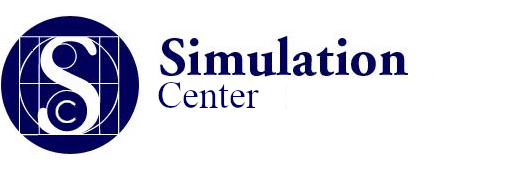
The Catalyst Experiential Learning And The Simulation Center
The drive for any change begins with learning. Social change is no different. It is driven by learning what problems society is facing and then learning how those problems can be addressed in effective ways. It logically follows that if social change is to become a reality, we must also change the way that we educate ourselves.
The Simulation Center’s role will be to establish learning based upon experience. Instead of passively listening, participants will actively engage in the learning process thereby increasing the effectiveness of the learning process by leaps and bounds. While certainly the education of children and youth will be a focus, the Simulation Center will also focus on helping adults learn in more effective ways through experiential learning in settings such as conferences.
One powerful tool that will be employed is simulations. A simulation is a short drama where participants adopt a persona for a short time and interact with others for the purpose of gaining new perspectives and ideas. Using this and other tools, individuals engage more in the learning process whether that is studying a subject in school, learning a career skill, or engaging in the political process, insights will be gained more quickly resulting in greater individual development and the greater change in aggregation.
Here are some examples of how experiential learning is applicable to future J&A social change initiatives:
Elections – In the election process today, it is more about how candidates present themselves than how capable they are to fill a position. What if instead campaigns included simulations. Each candidate is presented with a series of plausible scenarios that they are likely to encounter in office with other participants. The candidates have no prior knowledge of the details of the scenario, so their reactions are authentic. The event is broadcasted. As a result, votes can be cast based on real judgements of ability rather than on the rhetoric of public speeches and campaign slogans.
Conferences – In standard business conferences, presenters prepare slide decks and material. Attendees select sessions to attend, and with the exception of a short Q&A period, they are generally passive. In the Conference 360° model, attendees study the experts’ material beforehand; they come not as individual containers to be filled but as ready participants. They come in groups that already have momentum with the presenters’ material and are ready to engage actively with the presenter in further developing the material and applying it to life.
Dating – Modern dating has shifted from courtship and building long-term relationships to either a high-energy event or low-effort hangout without a goal. As dating is a preliminary step to the formation of a family, it is clear that by shifting the focus of dating, future families will also be benefitted. Changing something so intrinsic in society is virtually impossible without experiential learning. People can read every book on the dating and attend the most inspiring lectures on the topic, but for change to occur, individuals must act. Dating Shift Inc.’s focus is exactly that – helping individuals act. It will create a non-judgmental, loving space in which participants can share their experiences as they begin to change and support each other when difficulties arise. Read the corresponding chapter of the book.

